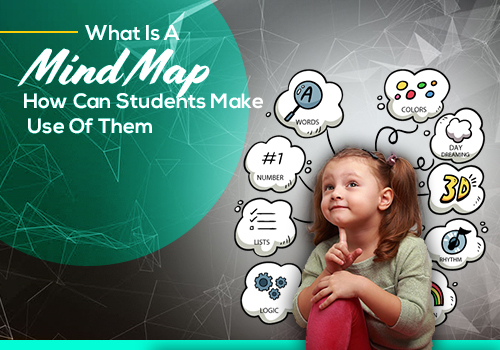It is always advised to study the portions regularly so that you just need to revise it at the time of exams.
However, it is quite common for students to skip their regular study sessions and indulge in fun activities.
Exams turn out a nightmare for such students and the exam pressure takes away their confidence level.
And they would end up worrying about the lost time in the past when they could have prepared well.
For those who are struggling to finish off the exam syllabus in the last few weeks, these last-minute exam preparation strategies might help.
1. Focus on your Weak Areas
You may be good at some subject areas whereas weak in some other areas.
So focus better on your weak areas at first and you can keep aside the areas in which you are good at, last on the list so that you can cover it easily.
2. Give Attention To Core Areas
Have a detailed look into the exam syllabus and spend more time and attention on the core areas.
Make a list of the subject areas that have more weightage for marks and give an additional focus to these areas in your last minute preparation which can help you to score better.
3. Revise Within 24 Hours
Once you study a certain portion in the exam syllabus for the first time, it is better to revise it within the next 24 hours to retain it in memory.
This helps you to recap, review and reinforce the new information and you can recall it much faster.
4. Try Visual or Audio Aids
You can mix up the learning style to make the study phase more productive. Instead of just studying the textbooks and notebooks always, try to include some visual and audio aids that help to register the learning content better.
This can even be your own audio or video recording in which you pretend to teach someone else.
5. Shift Between Subject Categories
While having exam preparation, First, have a look at the entire syllabus to cover and categorize it into three groups.
Also Read: 13 Ways To Deal With The Exam Stress
This includes contents that need interpretation like literature papers, the syllabus that is memory dependant like history and geography and lastly problem-solving subjects such as mathematics.
For a long study time to be effective, you can switch between these subject categories.
6. Create a Mind Map
A well-organized mind map can help you to study more efficiently and quickly during the last minute preparation.
This study tool helps you to connect between ideas or concepts pretty better during the final revision.
A mental association through this means helps you to recall the information better during the exams.
7. Read and write
Speed reading is good for understanding a subject faster.
So first read out the important points loud and write it down on a paper so that you are going through the content thrice, first by reading, then listening and finally by writing which makes a better impact.
8. Practice Past Year Exam Papers
Invest some time to practice the exam papers of past few years. Also, mark out the questions that tend to repeat quite often and prepare well on those questions to get some guaranteed marks.
9. Create Flash Cards
This is a tested and proven study tool for a better exam preparation during your final study hours. This helps to enhance your visual learning abilities and improve your memory recall.
You can test yourself using flash cards to analyze the areas that need additional revision.
10. Last-Minute Study Groups
It would be a good idea to be part of last-minute study groups of your friends or classmates.
You can discuss the important topics to be covered in exams, expected questions and new study hacks to study smarter.
You can have a fun, interactive study session where you can quiz and test each other and teach each other. However, make sure that you don’t divert the topics away from learning.
11. Have a Clear Overview of Exam
It is important to have a proper overview of the exam you are preparing for.
This includes the exam format, duration of the exam, the question patterns as well as the guidelines to be followed.
This helps you to avoid any last minute confusions and approach the exam with good confidence.
12. Create a Personal Study Guide
Rather than depending on other study guides, a personalized study guide can help you to study better and faster in your last minute.
Prepare such a guide well in advance that covers the particular areas that you need to focus and require additional revision.
13. Block out Possible Distractions
Make sure that there are no disruptions in your study environment which may easily divert you from learning. See that you are away from gaming gadgets, TV and even mobiles and laptops unless you are using it for study purpose.
Also, block any friends or relatives that may come up with some fun plans in your last minute study time.
14. Schedule Recovery Time
If you have exams for continuous days, make sure that you have enough recovery time every day.
Proper sleep and rest are needed to recharge your brain and appear fresh for the exam.
Having a sleepless night busy with studies can interfere with the process. Also eat well and do minimal exercise to stay fit and fresh for the next day’s exam.
15. Rest between Back-to-Back Exams
You will have to undergo back to back exams on a tight schedule at times.
So know the exam timetable well in advance and plan the study time accordingly so that you get enough rest between the exam days. Or else you will be worn out and may not be able to produce even what you know during the exams.
16. Take Regular Study Breaks
Avoid studying continuously for hours as the attention span of a student is less.
That is why it is important to take regular study breaks in between and make the sessions short.
Just dragging the study session with less concentration is not going to be productive.
17. Exercise between study breaks: Instead of watching TV or chatting with your friends that may distract you from studies, better invest that time for exercise that boosts your energy level and concentration for the next study session. Even 5 to 10 minutes of physical exercise can keep you fit for the learning.
18. Rest Your Hands
If the exam needs a lot of writing, make sure that you give proper rest to your hands the days before the exam.
A tired hand can affect the speed and performance in the exam.
You can even try using stress relief ball or toy during the time and take it with you in the exam hall if permitted.
19. Have Proper Food Habits
You should be physically healthy to prepare well for the exam and to perform well.
So maintain good food habits like not skipping breakfast, avoiding junk food and including more vegetables and fruits that enhances your brain function.
Also, drink lots of water throughout the day that keeps you hydrated and fresh and minimizes the possibilities of any illness at exam time.
20. Prepare last-Minute Review Notes
Just like the study guide, it is important to prepare last-minute review notes while you study it early.
This helps you to just glance through the notes just before the exam and revise your memory.
Include the concepts or terms you often struggle in these review notes and have a look at it before you go.
21. Plan Your Exam Day
Also, it is important for you to plan the exam day well in advance. Pack your bag with all required items such as hall ticket, pen, calculator and last minute study guides the night before the exam.
Also plan your schedule like when you will wake up, what time you get ready and reach the exam venue to avoid last minute hurry.
22. Get a Good Night’s Sleep
Just like studying well for the exam, having a good night’s sleep of at least 8 hours the previous day is very important to perform well. This keeps you physically and mentally fresh and relaxed and you can appear for the exam with a boosted memory.
Hope these study hacks can help the students to sort out their last-minute exam preparation struggles.
However, nothing can replace the continuous hard work and determination of a student to perform well.
Even when these tips and tricks can save you to an extent, a dedicated study plan and regular practice are important to edge out the competitors and score top marks.



